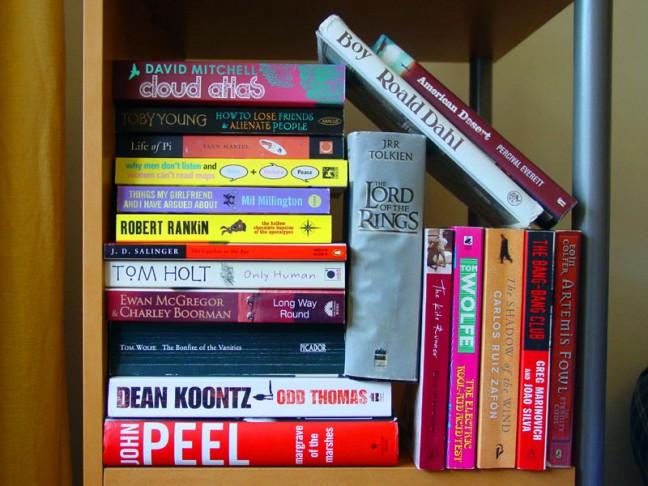With the pile of required readings that stack up throughout the week, it can be easy to forget reading can be fun. Forty years ago, the average University of Wisconsin student could be found indulging in various forms of entertainment between the strict regimen of drinking and studying. Instead of sticking their heads in selfies, most would stick their heads in a book. While technology and trends have progressed, leisure reading should not fall victim to the trend of short attention spans found in many college students.
Before mediums such as TV, reading was the most important technique to acquire knowledge. The tradition of storytelling never lost its footing, just as it hasn’t in the present, as a never-ending pile of classic novels has haunted all of our required readings. However, it was this resentment of old obscure books in high school, coupled with the boom of online commitment, that shunned any attachment of reading to leisure. The Scarlet Letter probably convinced zero 16-year-olds that reading was fun to do in our free time too.
According to a survey done by the Bureau of Labor Statistics, teens spend 19 minutes of every five hours reading, whereas using computers, socializing and watching TV take up nearly four of those precious five hours. Beyond this concerning trend of screen watching, the information we take in during this time comes direct, fast and temporary. We file through hundreds of pictures a day, read hundreds of words of stupid wit and flip through hundreds of channels. Commitment seems to be an issue not only in love, as after reading four sentences or watching 30 seconds of a video, our minds are ready for something new.
This short attention span is countered by books. Reading takes you along a long path to the end of a story, and you have to do the walking. Storytelling has made its most notorious shift to TV and movies, where stories are less subjective and other people do the walking. You can be drunk-texting your ex and still know what’s going on in Game of Thrones. The story is already imagined and envisioned in a beautiful display in front of you.
Reading for leisure is beyond all negative connotations of the barrel-scraping entertainment we’re all used to. Rather, reading in one’s free time is the most productive one may be all day. Reading engages the mind in a way that TV and Internet miss out on. It requires an active imagination to depict scenes and emotions while TV and movies do this exciting part for you. Writing is just one of the thousands of way artists express themselves, but you don’t need to wait in lines or decipher colors.
When one picks up a book, they are subjected to the particular author’s point of view and style. We’re forced to frame scenes in a particular way, but without the pictures filled in. One may say that this is not far reaching from the entertainment we indulge in today, but I disagree. Books portray style, emotion, plot and characters in such a descriptive manner; pictures sprint to catch up. From this we gain empathy in ways we wouldn’t usually.
So why again should we all close our laptops and open a book? Because even Game of Thrones was based off a book. Reading is not required, but it should be wanted.
Alex Mohney (alexmohney@hotmail.com


